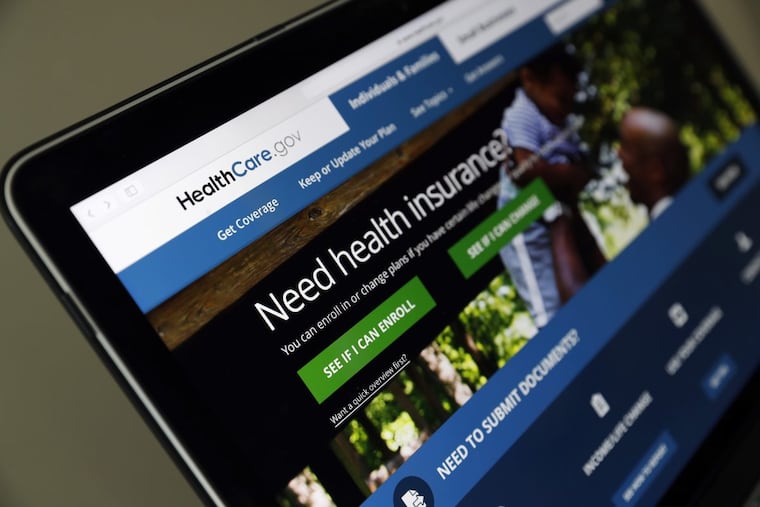The five most important things to know about Obamacare now
After so much talk of "repeal and replace," even people who work in health care - like me - can feel confused about the Affordable Care Act. Fortunately, a few basic facts can help straighten things out.

After so much talk of "repeal and replace," even people who work in health care—like me—can feel confused about the Affordable Care Act, known to many as Obamacare.
Fortunately, a few basic facts can help straighten things out.
Are you one of about 400,000 Pennsylvanians who last year enrolled through healthcare.gov? Do you need to buy your own insurance this year?
Here's what you should know—and do—now.
1. The Health Insurance Marketplace is here to stay for 2018.
At this point, nothing can change the fact that you can buy your health insurance for 2018 through the marketplaces put in place by the Affordable Care Act.
In Pennsylvania, no matter where you live, you will be able to pick and choose from coverage plans on healthcare.gov.
2. Monthly premiums will still be affordable for most people, because most people will get premium tax credits.
If you qualify for financial help in the form of premium tax credits, your monthly insurance bill, or premium, will be affordable during 2018.
Yes, insurance rates are going up. But if your income is such that you receive premium tax credits, these will go up right along with your premium price—and shield you from big premium increases.
That will likely be the case for most Pennsylvanians who enroll through the marketplace. You are eligible for premium tax credits so long as your annual earnings are below 400 percent of the federal poverty level (about $47,480 for individuals, $97,200 for families).
During 2017, four out of five Pennsylvanians who enrolled through the marketplace received premium tax credits. Many people will be able to get coverage for about $100 a month. It's certainly worth checking out!
3. Buying "off marketplace" may be your best option if you earn too much to get premium tax credits.
If you are not eligible for premium tax credits, you'll pay full price for your insurance. Due to rising insurance rates for marketplace plans, your monthly premiums will likely be higher.
Shopping for health insurance is very important—especially for Pennsylvanians in this situation. Pennsylvanian's acting insurance commissioner urges you to consider all your options:
If you had a silver marketplace plan last year, would another level of plan—gold or bronze—better meet your health and financial needs this year?
Would you do better buying a plan outside of the marketplace? Some of these plans will have smaller premium increases than those on the marketplace.
4. Start shopping now! Get help if you are confused. These resources and organizations can help find the best plan for you.
This online comparison tool helps Pennsylvanians shop for insurance coverage, on the marketplace – or off.
Click here to get started. You answer questions about where you live, your income, your health, and the doctors you see. Then you get a list of available plans on, and off, the marketplace along with:
Estimates of what the plans will cost you during 2018
Quality ratings
Whether your doctors are in the plans' networks
Would you rather make a phone call or talk in person? You have options here, too. Contact:
The insurance company or plan you are thinking of using
The hospital or health network where you go for health care
The American Hospital Association's #GetCovered website, where you can look up local help, including licensed insurance brokers if you want to check out off-marketplace plans
5. Mark your calendar: open enrollment starts November 1 and ends on December 15.
I know that many Pennsylvanians are feeling confused. A recent survey from Get America Covered shows the confusion about open enrollment for marketplace plans and when this year's open enrollment starts or ends.
Open enrollment is a short window, about six weeks. To make things more complicated, the healthcare.gov marketplace website will be down for maintenance on most Sunday mornings during enrollment.
Please visit healthcare.gov and review (or, if you are uninsured, sign up for) insurance coverage during open enrollment.
You may want to select a different plan, especially if:
Your health or the health of your family has changed
Your income or the income for your family has changed
Your plan has changed or been discontinued
Nothing is as important as your health. Having insurance coverage is a must if you are going to protect that health.
________________________
Paula Bussard is Chief Strategy Officer for The Hospital and Healthsystem Association of Pennsylvania.